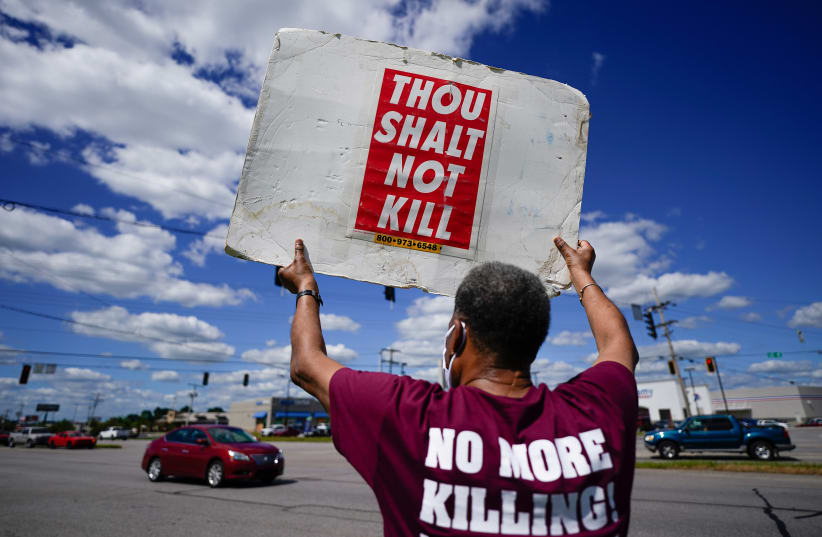July 15 (Reuters) - A US judge in Washington blocked what would have been the second federal execution in 17 years on Wednesday, hours before it was to take place, but her orders may yet be reversed as the Department of Justice challenges them in higher courts.
The Justice Department had planned to execute Wesley Purkey, who had been convicted of raping and murdering a 16-year-old girl, at 4 p.m. EDT (2000 GMT), despite objections by Purkey's lawyers that he has dementia and no longer understands his punishment.
Purkey's lawyers complained in a court filing late Wednesday that the Justice Department had revealed at the last minute it held "scientific confirmation" of "significant structural abnormalities in Mr. Purkey’s brain that are consistent with cognitive impairment such as vascular dementia or other conditions."
Wyn Hornbuckle, a Justice Department spokesman, did not immediately respond to a request for comment.
Early on Wednesday, US District Court Judge Tanya Chutkan in Washington issued two injunctions to allow various legal challenges by some of the 61 inmates on federal death row to continue.
One of the injunctions also prevents the federal government from carrying out all scheduled executions, including Purkey's.
The Justice Department has set execution dates for two other men convicted of murdering children: Dustin Honken on Friday and Keith Nelson on Aug. 28.
In issuing the broader injunction, Chutkan said the condemned men were likely to prevail in their argument that using pentobarbital in lethal injections breaches the Food, Drug and Cosmetic Act, which governs drug safety.
The Justice Department has argued that drug-safety laws do not apply when a drug is being used for executions.
It is the third time that Chutkan has issued an injunction delaying executions in the litigation over the Justice Department's new one-drug protocol, which replaces the previous three-drug protocol it last used in 2003.
The first injunction was overturned by an appeals court in April.
The second, issued on Monday ahead of the scheduled execution of Daniel Lee, a convicted murderer and one of the plaintiffs in the litigation challenging the new execution protocol, was overturned by the Supreme Court at about 2 a.m. (0600 GMT) on Tuesday. Lee was executed a few hours later, the first federal execution in 17 years.
On Wednesday, Chutkan agreed to a request by Lee's lawyers that she order the Vigo County Coroner's Office in Indiana to preserve Lee's body as evidence for his surviving plaintiffs in their continuing litigation. The lawyers had asked the judge to order the coroner to conduct an autopsy looking for any signs that he may have suffered during his death.
The coroner, Dr. Susan Amos, said in a telephone interview she had transferred custody of Lee's body to the Greiner Funeral Home in Terre Haute soon after Tuesday's execution. She said she had not completed an autopsy, citing an office policy to not do autopsies following an execution if there was no dispute about the cause of death.
Officials at Greiner Funeral Home declined to comment or to say if Lee's wish to have his body cremated had already been carried out.
In the second injunction issued on Wednesday, which applies only to Purkey, Chutkan sided with Purkey's lawyers for a so-called "competency hearing." The lawyers say Purkey's mental illness, including Alzheimer's disease, means he no longer understands why he is being executed, which the Justice Department disputes.
The Supreme Court has previously ruled it is "abhorrent" and unconstitutional to execute someone whose mental illness prevents them from comprehending their punishment.
The Justice Department is appealing the injunctions in both the US Court of Appeals for the D.C. Circuit and the Supreme Court.
Purkey, 68, was convicted in 2003 in Missouri. He dumped his victim's dismembered and burned remains in a septic pond.
